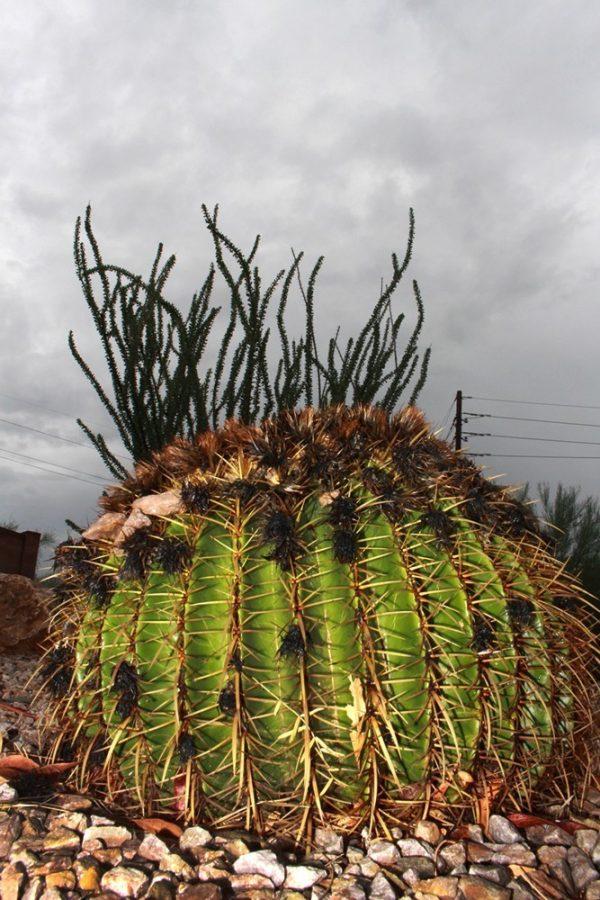The France-Arizona Institute for Global Grand Challenges held a panel to discuss land conservation, entitled “30% by 2030: Conserving Our Shared Lands,” on March 14.
The institute is a partnership between UA and the French National Centre for Scientific Research. It aims to “facilitate best-in-class research, focusing on the grandest challenges,” according to the Institute’s official website.
The March 14 panel was held at the Desert Laboratory on Tumamoc Hill to discuss the issues of land and biodiversity conservation. This was the first of a series of three panels that will take place in North American locations with notable conservation efforts. The next two panels are scheduled to take place in San Francisco and Vancouver, according to Mikayla Kelley, the moderator of the Tucson panel and a science writer for the University of Arizona Office of Communications.
RELATED: ‘Tis the season for sun burns
Kelley said that two permanent members of all three panels are representatives of the French National Centre for Scientific Research. The Tucson panel also included a representative from Tucson and a representative from Mexico because they are familiar with the local landscape and local conservation efforts. This will be the structure for the remaining panels as well, where there will be representatives of each particular regional perspective.
The U.S., France and Canada have each committed to preserving 30% of their land and water by 2030 in an effort to protect biodiversity. Kelley’s three questions were targeted towards addressing potential challenges of the effort, why this commitment is important and how to make this idea a reality.
She asked, “where do we stand,” “what do we have to lose” and “where do we go from here?”
Kelley estimated that the event generated a turn out of about 60 people. She said that while the panel made it clear that there is a long way to go towards achieving the preservation goal, the overall message was one of hope.
RELATED: Smart drug delivery technology
The panel “took academic conversations and made them accessible,” according to Kelley. She said that the panel members also took plenty of questions from Tucson locals, and they utilized the knowledge of local experts in order to make the global concepts more applicable to the local community.
Kelley also said that she felt that Tucson was a great location to hold a panel like this because the issue can be looked at from a number of diverse perspectives and land preservation can be important to each group for different reasons.
“There aren’t just conservationists, there are also ranchers, politicians, people who just want to enjoy nature, etc.,” Kelley said.
Kelley added, “We preserve land so that we can maintain biodiversity … Tucson is a great microcosm for these conversations because there are so many different stakeholders, and the conversation reflected that.”
Follow Natalie Temple on Twitter









